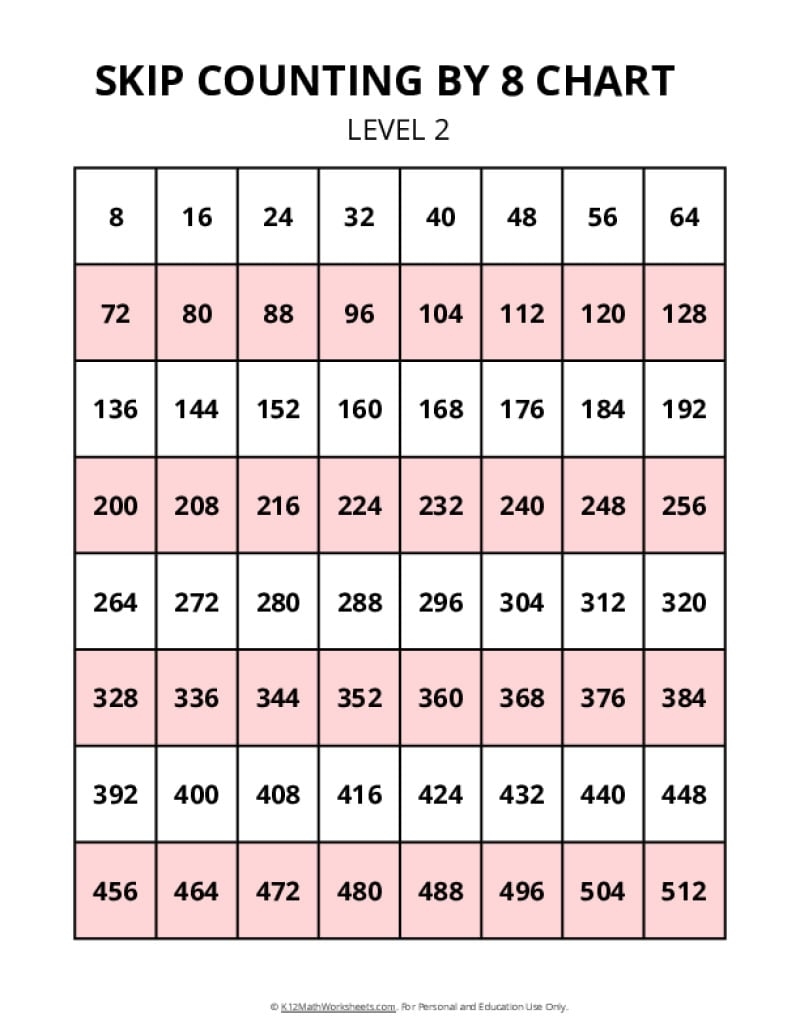Skip counting is a useful mathematical technique that involves counting by a certain number other than one. It helps in developing number sense and is an important skill for young learners to master. One common skip counting method is counting by 8, which can be both fun and educational.
By skip counting by 8, students can quickly learn multiples of 8 and improve their mental math skills. It also lays a strong foundation for understanding multiplication and division, making complex calculations easier to grasp in the future.
Skip Count by 8
When skip counting by 8, each number in the sequence is 8 more than the previous number. For example, starting from 0, the sequence would be 0, 8, 16, 24, 32, and so on. This pattern helps students recognize the relationship between numbers and strengthens their number sense.
Practicing skip counting by 8 can be done through various activities such as using a number line, flashcards, or even chanting the numbers aloud. It is a fun way for children to engage with numbers and improve their mathematical skills in an interactive manner.
Moreover, skip counting by 8 can be applied in real-life scenarios such as calculating the total number of legs in a group of animals or determining the number of hours in a week. This practical application helps students understand the relevance of skip counting and its importance in everyday life.
As students master skip counting by 8, they can progress to more challenging tasks such as solving multiplication problems or finding patterns in number sequences. This gradual development of mathematical skills enhances their overall cognitive abilities and prepares them for higher-level math concepts.
In conclusion, skip counting by 8 is a valuable skill that promotes number fluency and mathematical proficiency in students. By incorporating this technique into their learning routine, children can enhance their mental math skills, improve problem-solving abilities, and develop a deeper understanding of mathematical concepts. So, encourage your students to practice skip counting by 8 and witness the positive impact it has on their mathematical growth.
